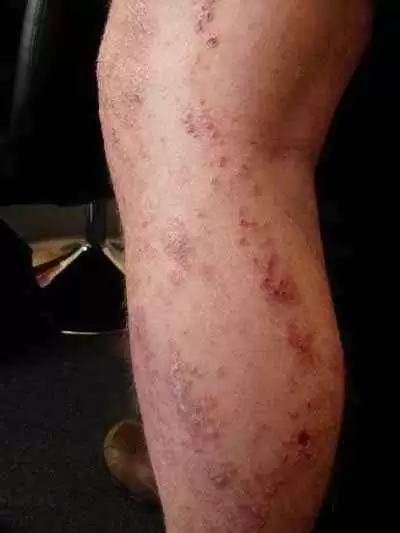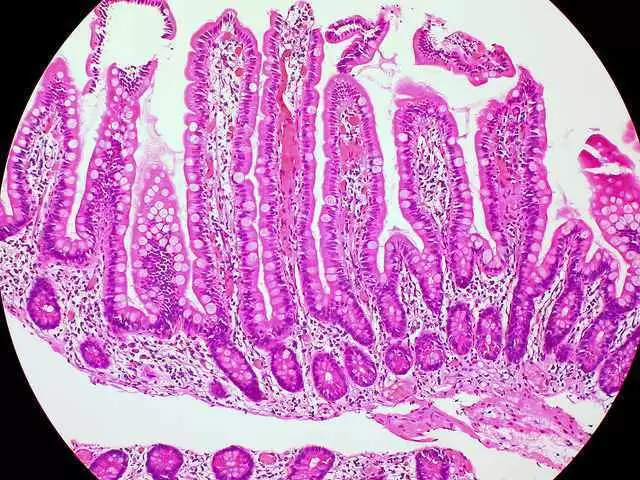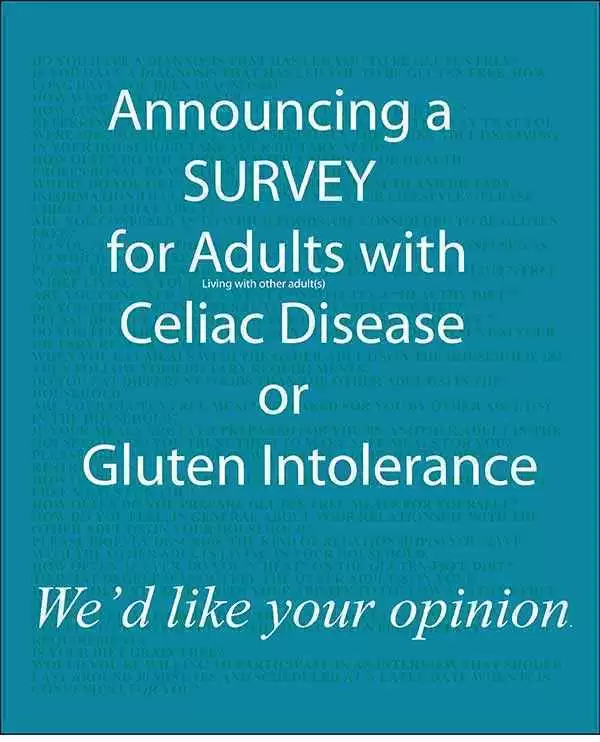
Celiac.com 04/26/2017 - "The universe is made of stories, not atoms" — Muriel Rukeyser
Helen, a woman with severe lifelong eczema/dermatitis, wrote to me a few weeks ago, saying "I have taken your advice and been strictly gluten free for five months now. The eczema inflammation is 99% gone and my skin quality has significantly improved. I do still get a bit itchy around my neck area and elbow creases, more so at night when it is warm.
Celiac.com Sponsor (A12):
I have noticed a significant improvement in my asthma also. I still use antihistamines perhaps once or twice a week for runny nose. Does this mean I will need to be gluten free for life? Which of your books would you say would be the most relevant for someone in my position? Thank you for your assistance, regards, Helen.
I recommended eBook: "Dermatitis Eczema: Gluten Wheat – Solving the eczema puzzle." Available at: http://www.GlutenEczema.com
This is an excerpt from the chapter: "Children better off gluten/wheat".
To help you get a better idea of how gluten can trigger eczema, here are narratives of some children whose eczema got better when their gluten sensitivity was recognised and treated. Most had good remission of their eczema on a gluten-free diet. Their stories told by their parents.
To give context to the blood test values, the normal reference ranges were:
- AGA: 0–15
- tTG: 0–20
Celiac disease with bad eczema
Lily at five years old was diagnosed by me with celiac disease. Symptoms: eczema. Run down, pot tummy and slow growth. Tests: All of her blood tests were positive for celiac disease (tTG 120) and she had an abnormal intestinal biopsy which confirmed the bowel damage of celiac disease. AGA very high (115).
Her mum said:
Recovering from gluten-eczema
Isabella, at two years old, was recovering from her eczema. I asked her mother what happens if Isabella has any gluten. Her mum said:
Blood all over her sheets
Emily was three years old. She had a high anti-gliadin antibodies (AGA 48) but she did not have celiac disease (normal tTG). Her mother told me:
Dry skin and worsening eczema
Breanna and Alyssa, twins aged 3 years. Symptoms: eczema and poor sleeping. Both had high AGA levels (60 & 68) and normal tTG levels (5 & 3). They did not warrant an endoscopy.
Mum writes:
Losing her hair – alopecia
Ella, age 6 years. Symptoms: eczema, alopecia, moody, abdominal pain, multiple food allergy. AGA high (49), tTG normal (3), EMA negative, Small bowel biopsy, normal.
Mum writes:
She was getting worse eczema
Tessa, age 2 years. Symptoms: eczema, poor growth, multiple food allergy. Tests: AGA high (51), tTG normal (7), Biopsy not done.
Mum writes:
Think about the gluten-eczema link
As you have been told by these families, gluten has been found to be an important trigger for eczema in these children.
My research findings show that the majority of people over three years of age, who have ongoing and troublesome eczema, have gluten-sensitivity. When gluten is removed from their diets, they get better.
Advice about blood testing for gluten and for information on a gluten-free diet can be found on our webpage: http://www.DrRodneyFord.com and in the previous chapters.
This is an excerpt from Dr Rodney Ford's eBook, "Dermatitis Eczema: Gluten Wheat – Solving the eczema puzzle" Available at: http://www.GlutenEczema.com
Written in the spirit of cooperation and knowledge sharing.
See Part 1: Cutaneous Gluten Sensitivity












Recommended Comments
There are no comments to display.
Create an account or sign in to comment
You need to be a member in order to leave a comment
Create an account
Sign up for a new account in our community. It's easy!
Register a new accountSign in
Already have an account? Sign in here.
Sign In Now